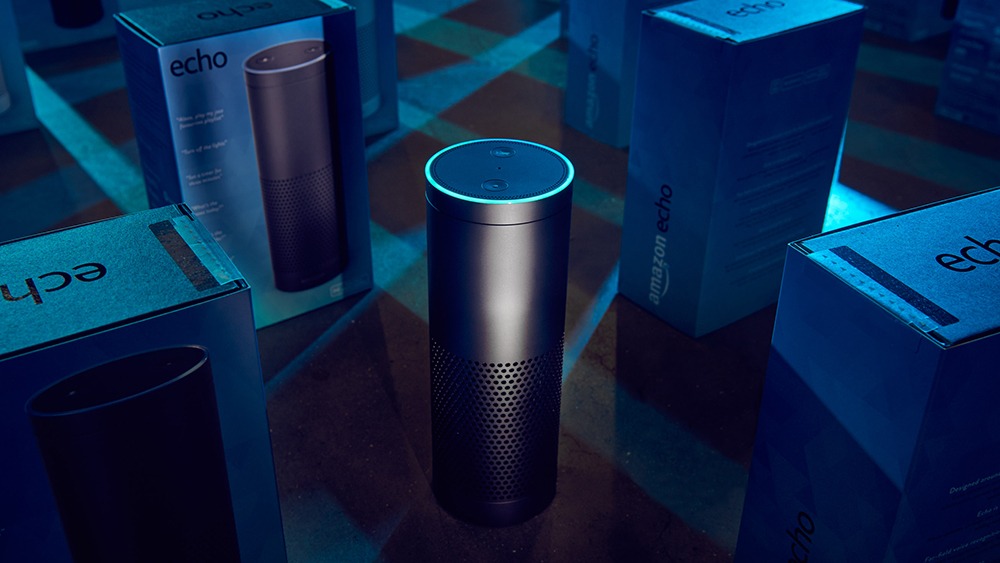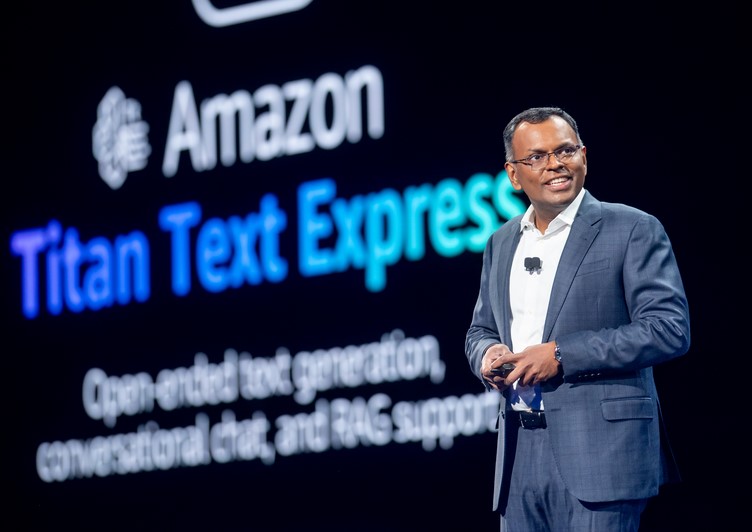Amazon opens up Alexa chatbot tools to developers
The company also unveils new AWS functions and Redshift search capabilities

Amazon Web Services (AWS) has unveiled a host of new tools and partnerships designed to boost its enterprise offering and expand its foothold in the AI market by placing Alexa's brainpower in the hands of developers.
Amazon Lex, the AI technology that powers the Echo's Alexa smart home assistant, has been made generally available for developers wishing to build chatbot features into their own apps.
The service, which has been in preview since late 2016, will allow creators to build speech recognition functions into apps, including conversational features that are able to monitor the weather, check the latest news, order food, or get the latest marketing data for businesses in much the same way as Alexa currently works.
"Thousands of machine learning and deep learning experts across Amazon have been developing AI technologies for years, and Amazon Alexa includes some of the most sophisticated and powerful deep learning technologies in existence," said Raju Gulabani, VP of databases, analytics and AI at AWS.
"We thought customers might be excited to use the same technology that powers Alexa to build conversational apps, but we've been blown away by the customer response to our preview."
The move signals Amazon's intent to become one of the leading players in chat-based AI, having dominated the smart home assistant race with Alexa. However with estimated sales of 10 million or more, Amazon is still far behind the numbers achieved by Apple devices with the Siri AI built in.

Processing a speech request in Amazon Lex
Get the ITPro daily newsletter
Sign up today and you will receive a free copy of our Future Focus 2025 report - the leading guidance on AI, cybersecurity and other IT challenges as per 700+ senior executives
In order to make use of the service, developers are required to provide sample phrases to indicate the actions a user might take, for example "Book a Flight", as well as the corresponding data Lex will need to source. This essentially removes the need for training and sophisticated algorithms on the developer's side, as Amazon Lex is able to do all the heavy lifting required to run and test the applications.
Once Lex has an understanding of the desired functions of a chat application, the system then builds a machine learning model that is able to manage the conversations and understand user intent. At this point the app is functional and can be published to smartphones or installed into IoT devices, with all the authentication procedures secured and managed entirely by Amazon.
Multiple pricing options are available based on the number of requests to be processed. The first year is free, in which you are able to process 10,000 text requests and 5,000 speech requests. Full pricing options are available here, with speech requests charged at $0.004 each.
Focus on the enterprise
AWS is clearly eying the enterprise as one of its largest potential customers of chat-based AI, as Lex has been built with AWS Lambda integration from the ground up. This system allows developers to run application code without the need for servers, and create apps that can retrieve data from other enterprise apps, including Salesforce and Zendesk, or AWS services including Amazon DynamoDB.
Alongside the announcement on Wednesday, Amazon revealed that HERE, a maps and location services company formerly part of Nokia, would be exclusively building its latest business extensions on AWS. The new tools will grant businesses access to real time sensor data on traffic conditions and hazards, in a bid to reduce congestion and improve safety, as well as logistical data covering infrastructure and the transportation of goods.
AWS also unveiled its new Redshift Spectrum feature that allows its customers to run SQL against their data hosted in Amazon's Simple Storage service (S3), allowing users to make use of analytical queries on data stored outside of local disks. Given the price drop of storing data, many customers have turned to hosting data inside S3 data lakes, according to Amazon, including unstructured data that is unlikely to make it to a data warehouse. The new tools promise to make it easier for customers to run Redshift SQL queries, regardless of where their data is stored.
Dale Walker is a contributor specializing in cybersecurity, data protection, and IT regulations. He was the former managing editor at ITPro, as well as its sibling sites CloudPro and ChannelPro. He spent a number of years reporting for ITPro from numerous domestic and international events, including IBM, Red Hat, Google, and has been a regular reporter for Microsoft's various yearly showcases, including Ignite.
-
 AWS goes all in on AI agents with new features for Bedrock and Amazon Q
AWS goes all in on AI agents with new features for Bedrock and Amazon QNews Agentic customizability is coming to Bedrock and the Amazon Q developer assistant
By George Fitzmaurice
-
 Amazon’s $4 billion investment in Anthropic faces UK competition probe – here’s what it means
Amazon’s $4 billion investment in Anthropic faces UK competition probe – here’s what it meansNews The CMA investigation into the Anthropic investment is the latest in a slew of probes by the competition regulator
By Emma Woollacott
-
 Hyperscaler AI spending is getting out of control — and Microsoft says it could take 15 years for it to make good on investments
Hyperscaler AI spending is getting out of control — and Microsoft says it could take 15 years for it to make good on investmentsNews Tech giants' results show billions being poured into AI infrastructure, but big leaps in revenue remain elusive
By Nicole Kobie
-
 ChatGPT could be facing some serious competition: Amazon is reportedly working on a new AI tool, ‘Metis’, to challenge the chatbot’s dominance
ChatGPT could be facing some serious competition: Amazon is reportedly working on a new AI tool, ‘Metis’, to challenge the chatbot’s dominanceNews Amazon could be preparing to mount a serious challenge on ChatGPT’s dominance with the launch of a new chatbot service
By Ross Kelly
-
 Microsoft, Amazon, Meta, and Google just promised to halt AI development if models are too dangerous — but will they stick to their promise?
Microsoft, Amazon, Meta, and Google just promised to halt AI development if models are too dangerous — but will they stick to their promise?News Promises on AI safety will only go so far, experts argue, prompting renewed calls for stronger legislation
By Steve Ranger
-
 CMA probe into big tech AI deals sparks concerns over industry confidence
CMA probe into big tech AI deals sparks concerns over industry confidenceNews The watchdog wants to examine whether the deals fall within UK merger rules or raise competition concerns
By Emma Woollacott
-
 The 5 generative AI investment winners of 2023
The 5 generative AI investment winners of 2023News Generative AI investment deals skyrocketed in 2023, with major industry players backing emerging startups
By George Fitzmaurice
-
 AWS re:Invent: All the big updates from the rapid fire day-two keynote
AWS re:Invent: All the big updates from the rapid fire day-two keynoteAnalysis AWS re:Invent has had no shortage of talking points so far
By Ross Kelly

